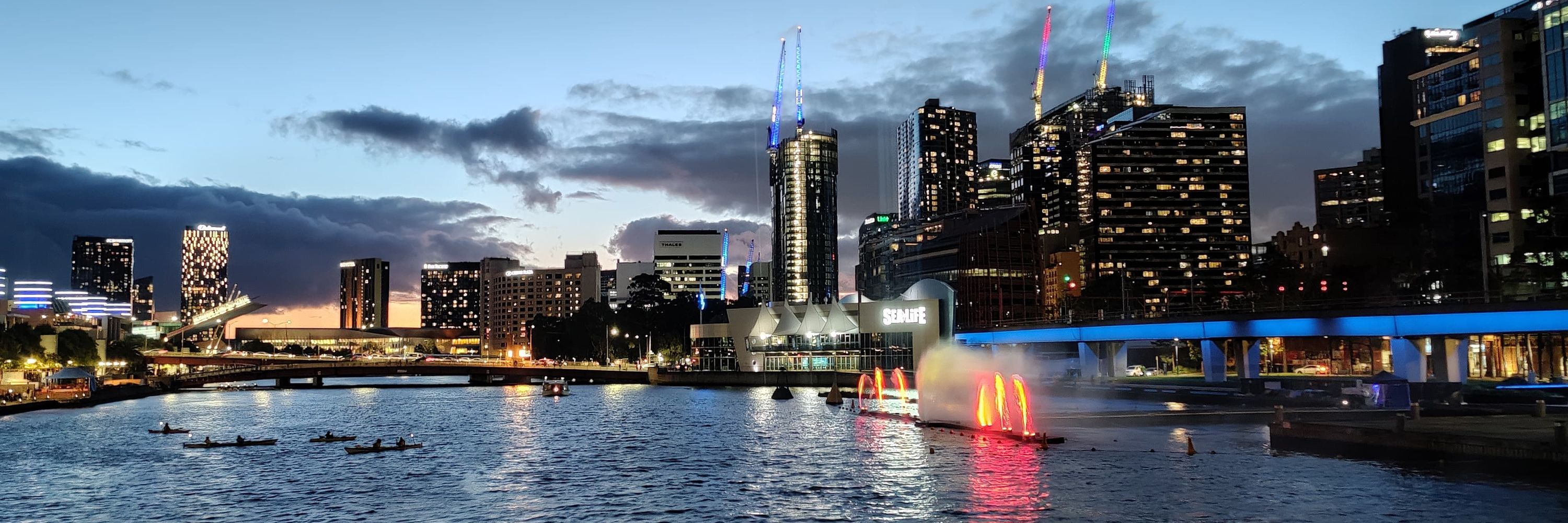
Lutfun Nahar Lata
@lutfunlata.bsky.social
Senior Lecturer in Sociology and Social Policy at the University of Melbourne, interested in work and employment, gig economy, migration, right to the city & public space. https://findanexpert.unimelb.edu.au/profile/878520-lutfun-nahar-lata
This paper sheds light on how gig workers shape and are shaped by the urban fabric.
We call for urban policies that acknowledge and support the presence, rights, and wellbeing of gig workers.
📍Melbourne is just one example—this is a global issue.
We call for urban policies that acknowledge and support the presence, rights, and wellbeing of gig workers.
📍Melbourne is just one example—this is a global issue.
July 30, 2025 at 5:47 AM
This paper sheds light on how gig workers shape and are shaped by the urban fabric.
We call for urban policies that acknowledge and support the presence, rights, and wellbeing of gig workers.
📍Melbourne is just one example—this is a global issue.
We call for urban policies that acknowledge and support the presence, rights, and wellbeing of gig workers.
📍Melbourne is just one example—this is a global issue.
Yet, amidst precarity:
🤝 Riders form strong peer networks in public space
💬 Small acts of solidarity, sharing, and rest
🧠 These social ties become vital to mental health & resilience.
🤝 Riders form strong peer networks in public space
💬 Small acts of solidarity, sharing, and rest
🧠 These social ties become vital to mental health & resilience.
July 30, 2025 at 5:47 AM
Yet, amidst precarity:
🤝 Riders form strong peer networks in public space
💬 Small acts of solidarity, sharing, and rest
🧠 These social ties become vital to mental health & resilience.
🤝 Riders form strong peer networks in public space
💬 Small acts of solidarity, sharing, and rest
🧠 These social ties become vital to mental health & resilience.
Key findings:
🚫 Denied access to restaurants/lobbies
🛑 No safe or legal rest zones
🪑 Riders rest on bikes or public benches
🧻 No toilets, shelter, or charging points
These exclusions are part of the architecture of gig work
🚫 Denied access to restaurants/lobbies
🛑 No safe or legal rest zones
🪑 Riders rest on bikes or public benches
🧻 No toilets, shelter, or charging points
These exclusions are part of the architecture of gig work
July 30, 2025 at 5:47 AM
Key findings:
🚫 Denied access to restaurants/lobbies
🛑 No safe or legal rest zones
🪑 Riders rest on bikes or public benches
🧻 No toilets, shelter, or charging points
These exclusions are part of the architecture of gig work
🚫 Denied access to restaurants/lobbies
🛑 No safe or legal rest zones
🪑 Riders rest on bikes or public benches
🧻 No toilets, shelter, or charging points
These exclusions are part of the architecture of gig work
As cities become more dependent on digital labour platforms, it is crucial to ensure that platform workers have access to the same urban amenities as everyone else. Governments, unions, & communities must work together to prevent the deepening of inequalities in the gig economy.
March 19, 2025 at 8:20 AM
As cities become more dependent on digital labour platforms, it is crucial to ensure that platform workers have access to the same urban amenities as everyone else. Governments, unions, & communities must work together to prevent the deepening of inequalities in the gig economy.
We introduce the concept ‘parasitic platform urbanism’ to refer to platforms as ‘parasites’. Just as parasites benefit at the expense of the other, or the ‘host’, digital labour platforms rely on cities’ existing public infrastructure without acknowledging this reliance.
March 19, 2025 at 8:20 AM
We introduce the concept ‘parasitic platform urbanism’ to refer to platforms as ‘parasites’. Just as parasites benefit at the expense of the other, or the ‘host’, digital labour platforms rely on cities’ existing public infrastructure without acknowledging this reliance.
Our paper examines how gig workers navigate the urban landscape using public infrastructure - parking spaces, toilets, water points, and battery charging facilities, while platform companies reap the benefits without contributing to these essential resources.
March 19, 2025 at 8:20 AM
Our paper examines how gig workers navigate the urban landscape using public infrastructure - parking spaces, toilets, water points, and battery charging facilities, while platform companies reap the benefits without contributing to these essential resources.

